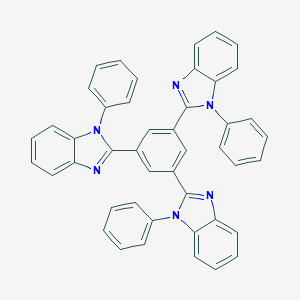Psychedelics can alter brain cells in laboratory mice
-
Last Update: 2020-12-18
-
Source: Internet
-
Author: User
Search more information of high quality chemicals, good prices and reliable suppliers, visit
www.echemi.com
psychedelics may change thinking. A new study published in the journal
found that psychedelic drugs, especially DOI, DMT and LSD, can alter brain cells in mice and flies, making neurons more likely to fork and connect with each other. The study supports psychedelic drugs that may help combat depression, anxiety, addiction and post-traumatic stress disorder.
are powerful compounds known to affect brain function, and it's clear that we should figure out how they work," he said. Senior author David E. Olson, an assistant professor in the Department of Biochemistry and Molecular Medicine at the University of California, Davis, said.
popular view is that depression stems from chemical imbalances in the brain, but recent studies have shown that depression is a manifestation of structural changes in the brain circuit or brain atrophy. This does not mean that neurons die of depression, but nerve cells contract.
" depression is the atrophy of nerve cells in the pre-cortological corties. These brain changes also occur in cases of anxiety, addiction, and post-traumatic stress disorder, Olson said. The pre-cortique is a key brain region that regulates mood and anxiety.
paper, Olson and colleagues tested psychedelic agents from drugs such as amphetamines and chromamines. In test tubes and animal experiments, psychedelics showed functional and structural changes, similar to ketamine's promotion of cortogenic neurons. Psychedelics increase the density of desceptive ratchets and synapses, and even some psychedelics, such as LSD, are more effective at promoting nerve growth than ketamine.
, although the researchers did not conduct human experiments, vertebrate and invertebrate experiments showed that psychedelics had similar effects in different species. This suggests that the biological mechanisms that respond to psychedelics have remained the same in evolution, so psychedelics may have the same brain growth (neuroplastic) effect in humans.
Olson and colleagues also tested how these psychedelics promote neuroplasticity and explored biological pathways activated by psychedelics that can cause nervous system growth. The neuroplastic effects of ketamine have been shown to depend on a protein called brain-source neurotrophic factor (BDNF). When researchers block BDNF signals, psychedelics lose their ability to promote nerve growth. In addition, inhibition of mTOR completely blocks the ability of psychedelic agents to promote nerve growth.
believe that identifying signaling paths that cause changes in the brain by psychedelics could help develop depression treatments in the future. (Source: Tang Feng, China Science Daily)
This article is an English version of an article which is originally in the Chinese language on echemi.com and is provided for information purposes only.
This website makes no representation or warranty of any kind, either expressed or implied, as to the accuracy, completeness ownership or reliability of
the article or any translations thereof. If you have any concerns or complaints relating to the article, please send an email, providing a detailed
description of the concern or complaint, to
service@echemi.com. A staff member will contact you within 5 working days. Once verified, infringing content
will be removed immediately.







